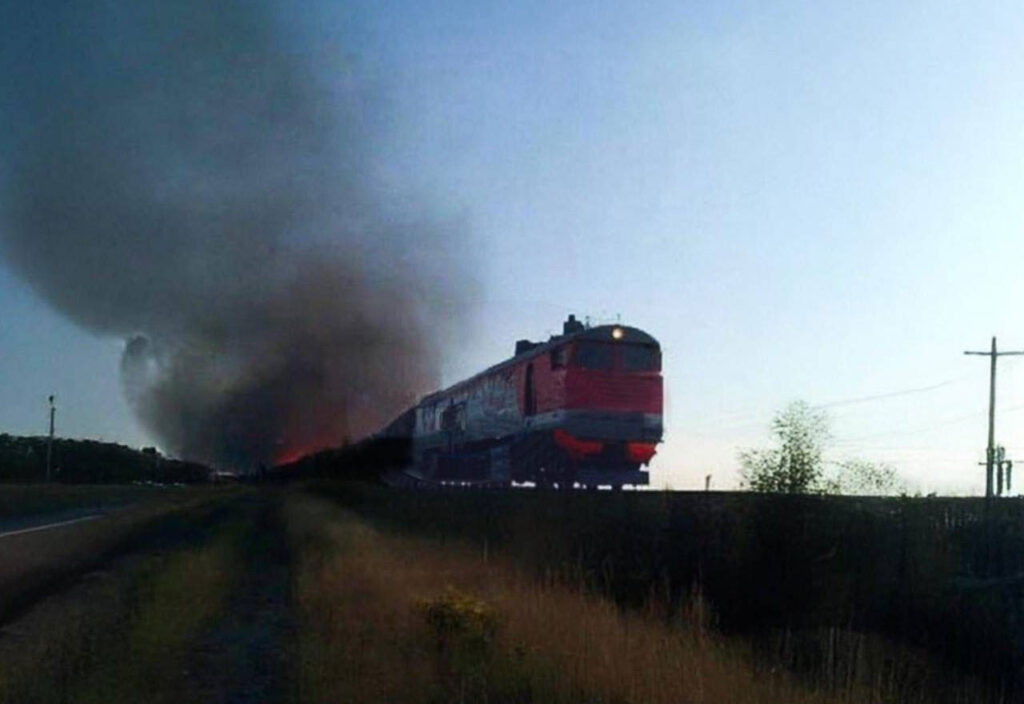Creaking wheels: Russian railway cargo plunges for third quarter as war costs mount

Russian Railways’ cargo volumes dropped 5.4% in August 2025 compared to the previous year, marking the third consecutive quarterly decline as sanctions and war costs devastate Moscow’s economy.
According to Ukraine’s Center for Countering Disinformation, the state railway monopolist transported just 92.2 million tons in August, down from 97.2 million tons in August 2024.
Over eight months, total shipments fell 7.1% to 738.8 million tons compared to 2024 levels.
Economic backbone crumbles under pressure
The railway data exposes how deeply the war has damaged Russia’s economic foundation. Russian Railways handles 87% of the country’s cargo transport excluding pipelines, making freight volumes a direct indicator of industrial activity across key sectors from construction to metallurgy.
The transport crisis more than validates Western sanctions strategy and signals Russia’s declining ability to sustain prolonged conflict—critical intelligence for policymakers weighing continued Ukraine support.
The steepest declines hit Russia’s most strategic industries. Construction materials shipments collapsed 15%, ferrous metals dropped 17.3%, and coal fell 3.6%.
Oil shipments decreased 4.9% due to refinery maintenance issues, while grain transport plummeted 30.7% following poor harvests and export restrictions.
Earlier data published by Russia’s own Interfax on 12 August showed similar patterns through July, with cargo volumes down 6.2% over the seven months to 739.3 million tons. Domestic shipments fell 8.9% to 437.9 million tons, while international cargo dropped 2.1% to 301.4 million tons.
Sanctions bite deeper as infrastructure crumbles
The transportation crisis reflects broader economic stagnation gripping Russia nearly four years into its war against Ukraine. Western sanctions have severed access to critical railway components, forcing the state monopolist to trim its planned investment program by nearly 40%, cutting spending from 1.3 trillion rubles to 834 billion rubles for 2025.
Labor shortages compound the problems as mobilization pulls thousands of railway workers into military service.
The company now faces deficits of 2,500 engineers and 3,000 locomotive crews, forcing cancellation of approximately 200 train services daily.
Ukrainian drone strikes continue targeting Russian rail infrastructure. For example, a recent attack on 21 August struck a railway substation in Voronezh Oblast, disrupting military supply lines and civilian cargo movement.
War economy shows strain
The railway decline parallels Russia’s broader economic struggles. Military spending consumes 6.3% of GDP—the highest since the Cold War. The war economy’s temporary GDP boost masks structural problems, including chronic labor shortages and vanishing productivity gains.
Transport indicators typically warn early about economic downturns, as reduced cargo volumes signal decreased industrial production and weakening domestic demand. The consistent quarterly declines suggest Russia’s economic foundation continues deteriorating under the weight of sustained warfare and international isolation.
The Center for Countering Disinformation reported on 10 August that Russian Railways was forcing employees to take unpaid “vacations” due to financial constraints—another indicator of the state monopolist’s mounting difficulties.